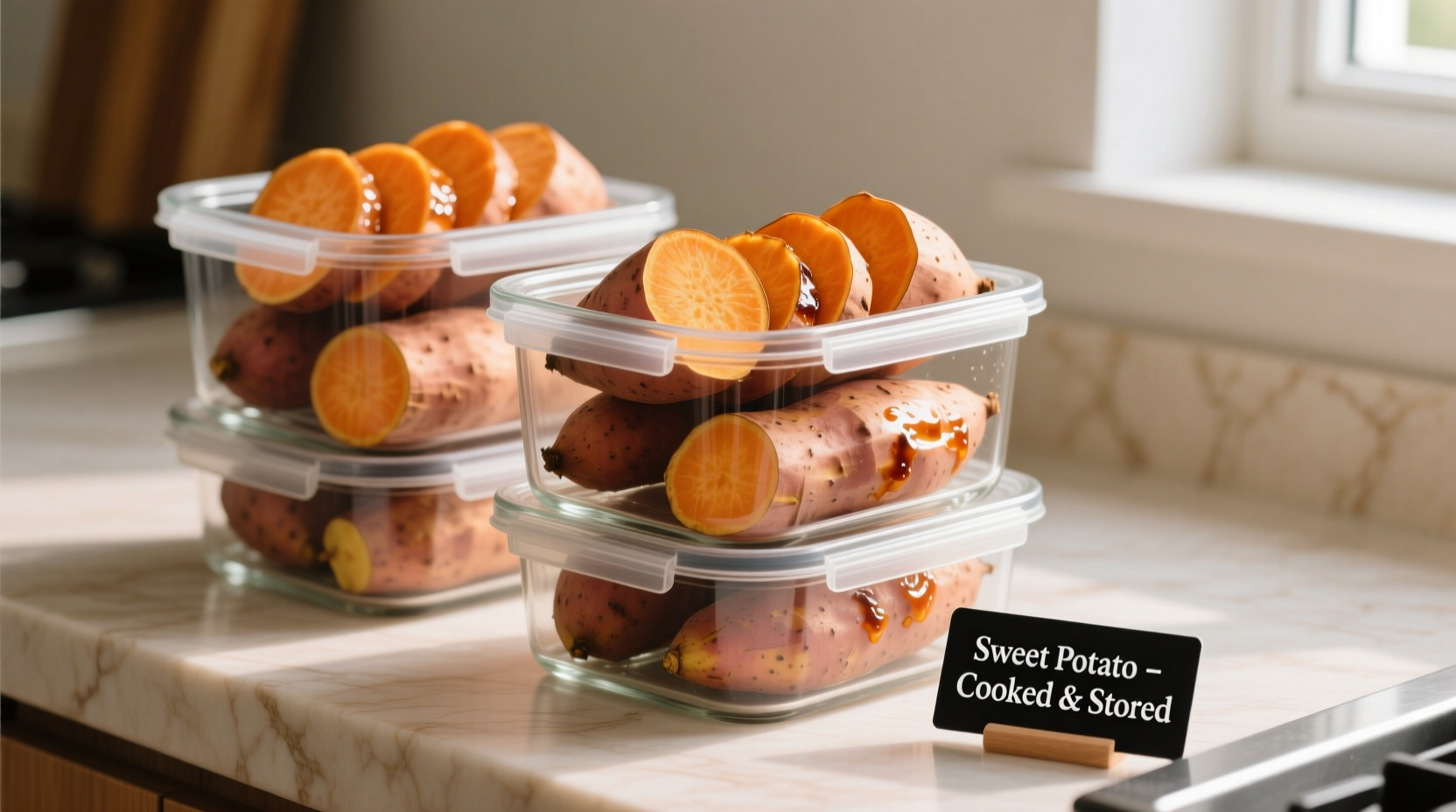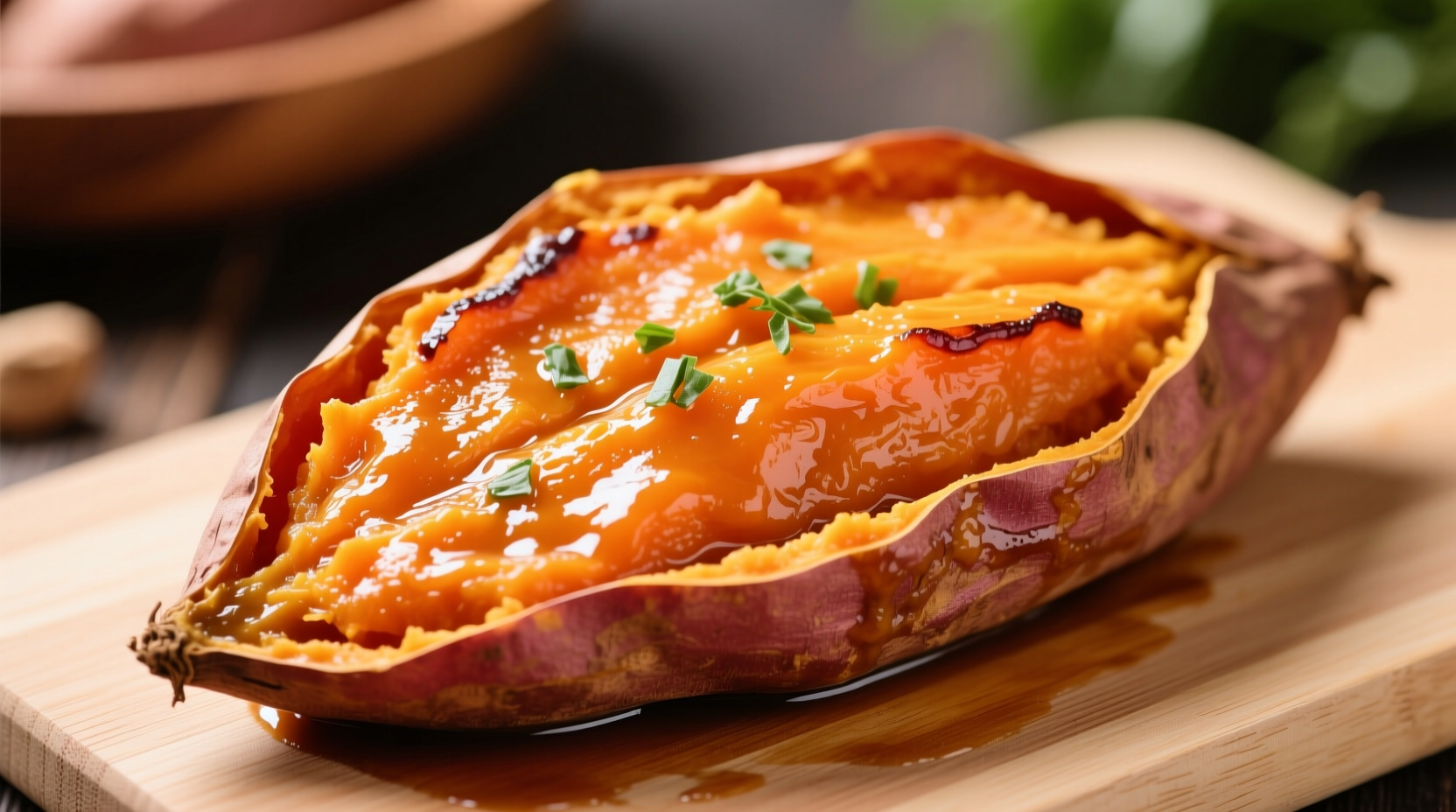Ever wonder how long those delicious roasted sweet potatoes will stay safe to eat in your fridge? You're not alone. Millions of home cooks face this question weekly as they try to minimize food waste while keeping their families safe. Getting storage times right matters more than you might think - improper handling of cooked vegetables accounts for nearly 12% of preventable foodborne illness cases according to the CDC's latest food safety report.
Understanding Refrigeration Timeframes for Cooked Sweet Potatoes
When stored correctly, cooked sweet potatoes maintain both safety and quality within specific timeframes. The USDA Food Safety and Inspection Service confirms that cooked vegetables like sweet potatoes remain safe for consumption for 3-5 days under proper refrigeration conditions. This window applies whether your sweet potatoes are baked, boiled, mashed, or roasted.
Temperature control proves critical here. Your refrigerator must maintain a consistent temperature at or below 40°F (4°C) - higher temperatures accelerate bacterial growth that leads to spoilage. Consider using a refrigerator thermometer to verify your appliance's actual temperature, as many household units run warmer than their display settings suggest.
| Storage Method | Optimal Duration | Temperature Requirement | Source |
|---|---|---|---|
| Refrigerator (whole) | 4-5 days | ≤40°F (4°C) | USDA Food Safety |
| Refrigerator (mashed) | 3-4 days | ≤40°F (4°C) | FDA Food Code |
| Freezer (properly packaged) | 10-12 months | 0°F (-18°C) | National Center for Home Food Preservation |
Freezing Cooked Sweet Potatoes for Long-Term Storage
When you need to preserve cooked sweet potatoes beyond the 5-day refrigeration window, freezing offers the most reliable solution. Properly frozen sweet potatoes maintain both safety and quality for 10-12 months. The National Center for Home Food Preservation confirms that freezing essentially pauses bacterial growth, making properly stored frozen sweet potatoes safe indefinitely - though quality gradually declines after one year.
Follow these professional chef-recommended steps for optimal freezing results:
- Cool cooked sweet potatoes completely before packaging (never freeze while hot)
- Portion into meal-sized servings for convenient thawing
- Use vacuum-sealed bags or rigid freezer containers with minimal air space
- Label packages with contents and date
- Store at 0°F (-18°C) or lower for best results

Recognizing When Cooked Sweet Potatoes Have Spoiled
Knowing when to discard cooked sweet potatoes prevents potential foodborne illness. Trust your senses rather than strictly following calendar dates. Discard immediately if you notice any of these warning signs:
- Visual changes: Mold growth, significant darkening, or unusual discoloration
- Texture issues: Slimy surface, excessive mushiness, or separation of liquids
- Odor problems: Sour, rancid, or generally unpleasant smells
- Taste abnormalities: If it passes visual and smell tests but tastes off
When in doubt, throw it out. The USDA consistently emphasizes that no amount of reheating can eliminate certain toxins produced by bacteria once food has spoiled.
Storage Best Practices for Different Preparation Methods
Not all cooked sweet potato preparations share identical storage requirements. Understanding these context boundaries helps maximize both safety and quality:
- Whole baked sweet potatoes: Maintain quality for 4-5 days refrigerated. Store with skin intact to preserve moisture.
- Mashed sweet potatoes: Last 3-4 days due to increased surface area. Add a thin layer of milk or cream on top before sealing to prevent drying.
- Sweet potato casserole: 3-4 days refrigerated. The added ingredients (like marshmallows or pecans) reduce the storage window slightly.
- Sweet potato fries: Best consumed within 3 days. They tend to become soggy faster than other preparations.
Practical Tips for Maximizing Freshness and Safety
Implement these professional-tested techniques to extend the life of your cooked sweet potatoes while maintaining food safety:
- Cool rapidly: Divide large batches into smaller containers to cool faster before refrigerating
- Air-tight is right: Use containers specifically designed for food storage with secure seals
- First in, first out: Practice proper rotation by placing newer containers behind older ones
- Reheat thoroughly: Bring to 165°F (74°C) when reheating to ensure safety
- Avoid repeated temperature changes: Minimize taking containers in and out of the refrigerator
Remember that these guidelines apply specifically to plain cooked sweet potatoes. Additions like dairy, eggs, or meat products in recipes like sweet potato casseroles may alter recommended storage times. Always follow the shortest recommended timeframe when multiple ingredients are involved.
Frequently Asked Questions
Can you eat cooked sweet potatoes after 7 days in the refrigerator?
No, cooked sweet potatoes should not be consumed after 7 days in the refrigerator. The USDA Food Safety and Inspection Service recommends discarding cooked vegetables after 3-5 days to prevent potential foodborne illness. Even if they appear normal, harmful bacteria may have multiplied to unsafe levels.
How can you tell if frozen sweet potatoes have gone bad?
Frozen sweet potatoes remain safe indefinitely but lose quality over time. Signs of freezer burn include white, dry spots on the surface, excessive ice crystals inside packaging, and significant texture changes after thawing. While freezer-burned food is safe to eat, the quality and flavor will be compromised. For best quality, consume within 12 months.
What's the best container for storing cooked sweet potatoes?
Rigid, airtight containers specifically designed for food storage work best for refrigerated sweet potatoes. Glass containers with locking lids maintain temperature stability better than plastic. For freezing, vacuum-sealed bags remove excess air that causes freezer burn. Always leave about 1/2 inch of headspace in containers to allow for expansion during freezing.
Can you freeze sweet potato soup or puree?
Yes, sweet potato soup and puree freeze exceptionally well. Cool completely before transferring to freezer-safe containers, leaving 1 inch of headspace for expansion. For best results, portion into single-serving sizes. The National Center for Home Food Preservation recommends using frozen purees within 10-12 months for optimal quality, though they remain safe beyond this timeframe.
Do cooked sweet potatoes last longer than regular potatoes?
Cooked sweet potatoes generally have a slightly shorter refrigerator life than regular potatoes due to their higher sugar content, which can accelerate spoilage. Both should be consumed within 3-5 days when refrigerated properly. The storage guidelines from the FDA Food Code treat both types similarly for food safety purposes, though sweet potatoes may show signs of spoilage slightly sooner.











 浙公网安备
33010002000092号
浙公网安备
33010002000092号 浙B2-20120091-4
浙B2-20120091-4